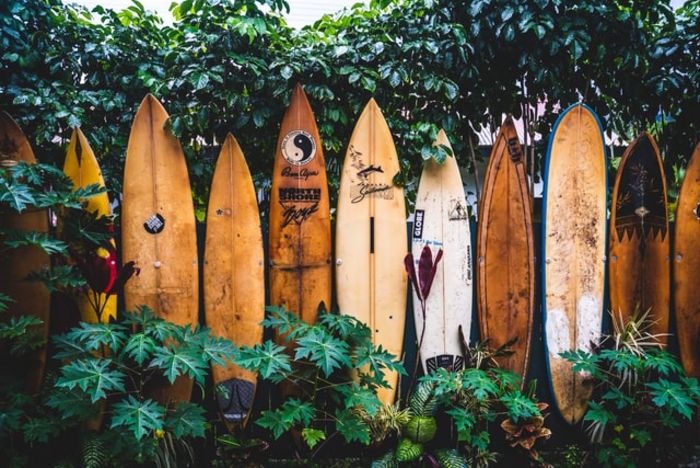For the Kanaka Maoli, the Native Hawaiians, Carissa Moore is more than just surfing’s first Olympic champion. Her success at the sport’s Olympic debut in Tokyo 2021 is considered an empowering force for an Indigenous community that struggles with its colonial history and its present-day consequences, and in which surfing plays an important role.
From a colonial past to a commercialized present
Surfing is a millennia-old tradition of the Polynesian islands that was particularly well documented in Hawaii. It was not only a fun activity, but also a spiritual act. Ancient Hawaiians used it to celebrate life and their connection to the ocean. When a tree was chosen and cut down for the creation of a surfboard, offerings were made to the gods. Priests and religious ceremonies accompanied the process of shaping the surfboard. Surfing competitions were used to solve conflicts between islanders and to define social hierarchies within the community.
Christian Missionaries, however, banned the sport in the 19th century so that it almost vanished completely. It was travellers like Mark Twain who reported about the Hawaiian tradition and laid the foundation for surfing to reach the U.S. mainland. At the beginning of the 20th century, Duke Kahanamoku, a multiple Olympic swimming champion, then became the main promotor of the sport throughout the world. Around the 1960s, surfing made its way into U.S. and Australian pop culture. During this time, however, it became detached from its cultural and religious origins. Instead, it was heavily commercialized and loaded with exotic stereotypes. Thus, it became part of a white-dominated (albeit tanned), capitalist culture.
Today, surfing is a billion-dollar-industry. There are approximately 30-35 million practitioners – surfing on every continent. Even in countries with poor waves, such as Germany, surfing is evolving from a niche to a popular mass sport. Despite the lack of good waves here, more and more people are going on a surfing vacation.
Surf tourism as a chance to tackle neo-colonial structures
All over the world there are surf schools and surf camps. Here, tourists are taught the practical execution of the sport and theoretical backgrounds. In addition to lectures on wave formation or the influence of tides, it would be possible to pass information on surfing’s cultural origin and its spiritual meaning to the ancient Hawaiians. This could contribute to a reunion of the millennia-old tradition with its cultural heritage. After all, in order to move from cultural appropriation to cultural appreciation, it is necessary to actively address surfing’s traditional cultural customs, colonial past, and neo-colonial present. By integrating these topics into the surf course, surf schools and camps can reach out to many people at a low barrier. By doing so, they can influence them and thus play an important role. Unfortunately, this opportunity is usually missed. Instead, the common neo-colonial narrative of an "exotic" sport for whites is perpetuated. Hawaiian surf school names or hibiscus flowers on websites just profitably imitate cultural heritage.
From Costa Rica to Morocco, Sri Lanka, or Indonesia, there are surf hostels and camps, owned by expatriates. The often small villages in which they have set up their business serve only as a scenery for the practice of the sport. The local staff often only takes on auxiliary work. Thus, economic development and local value creation remain low, and cultural exchange between travellers and local communities too rarely takes place on an equal footing. This lack of local integration of surf tourism often even reinforces neo-colonial concepts.
A more intensive examination of the colonial overprinting of traditional surfing would be an opportunity to also change surf tourism, which today is itself too often part of neo-colonial power structures.
The author Johannes Klinge is currently doing an internship at Tourism Watch as part of his master’s degree in "Sports Tourism and Destination Management" in Cologne. He is a passionate surfer and has many years of experience as a surf instructor.


